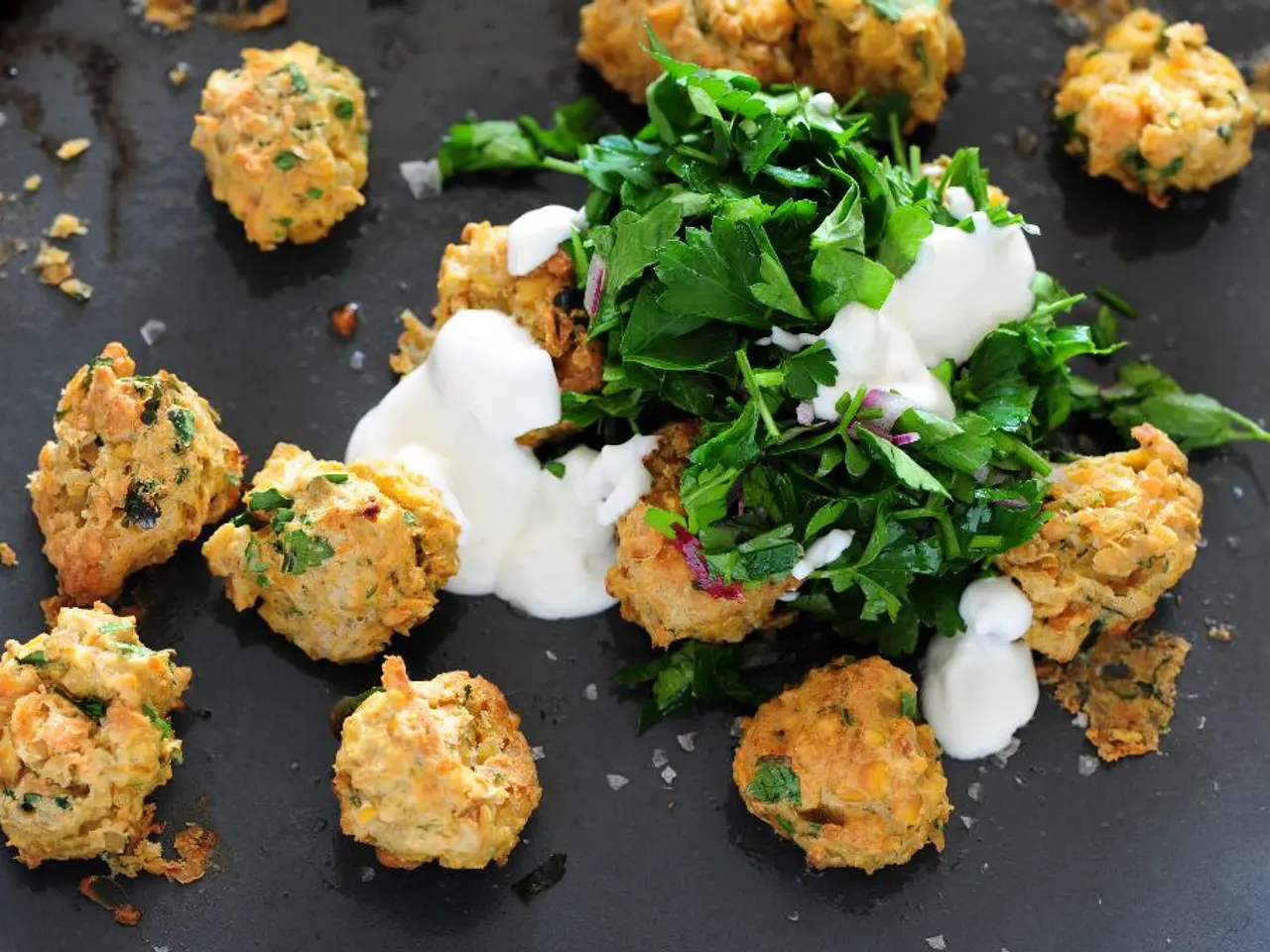Impact of ADHD Medications on Children's Food Consumption: Insights Explored
Managing ADHD in children can be a challenging task, especially when it comes to dealing with the side effects of medications. One common issue is loss of appetite, which can impact a child's growth and overall well-being. Here's a fresh take on how to help kids with ADHD maintain a healthy diet:
ADHD medications such as Ritalin, Adderall, Focalin, Concerta, and Dexedrine often come with appetite suppression side effects. And while these meds can help reduce symptoms, they can also lead to weight loss. With that in mind, here are some tips to help increase your child's food intake:
- Go for Grab-and-Go Snacks: Keep the pantry stocked with quick, healthy snacks that your child can grab when they're feeling peckish. Think fruits, veggies, nuts, yogurt, and cheese sticks.
- Time Meals Right: Give medications with food or after meals to help boost appetite. Consider talking to your child's doctor about switching to short-acting medication if that's more effective.
- Medication Vacations: Take a break from medication during significant growth periods if possible. These planned pauses, called medication vacations, can help your child's body catch up on nutrients. During these breaks, certain multinutrient supplements may be beneficial.
- Make Mealtimes a Family Affair: Sit down and share meals with your family. Not only does it provide emotional support and strengthen routines, but it also helps you monitor your child's eating habits closely.
- Eat Breakfast Like a King: Make sure your child eats a hearty breakfast. Protein-rich options like egg sandwiches, Greek yogurt, or peanut butter on whole-grain toast can help your child feel full throughout the day.
- Avoid Obsessing Over Calories: Encourage a positive relationship with food by focusing on balanced, nutrient-dense meals, rather than calorie counting. Avoid negative food talk as well.
- Stay Active: Physical activity and sensory play can help regulate energy and behavior in children with ADHD, which may indirectly support healthy appetite regulation and weight management.
Remember, managing weight in children with ADHD during medication vacations involves creating a supportive nutritional environment that promotes steady growth and prevents rebound overeating. By focusing on protein-rich, balanced meals and healthy snacks, establishing regular and consistent meal times, encouraging physical activity, and modeling positive attitudes towards food, you can help your child maintain a healthy weight while managing their ADHD symptoms.
Ref: Brown, KA., Samuel, S., and Patel, DR. (2018), Johnstone, JM., Hatsu, I., Tost, G., Srikanth, P., Eiterman, LP., Bruton, AM., Ast, HK., et al. (2021), Vink, M. (2018).
- Incorporating nutrition science into daily routines is essential to support a child's health-and-wellness, especially during medication vacations for ADHD.
- Regular fitness-and-exercise, such as playtime or structured activities, can be beneficial for regulating energy and appetite in children with ADHD, promoting overall mental-health and healthy eating habits.
- To ensure comprehensive health-and-wellness, prioritize a balanced diet rich in proteins, fruits, vegetables, and nuts, as suggested by studies by Brown et al. (2018) and Johnstone et al. (2021), and consider supplements during medication breaks.








